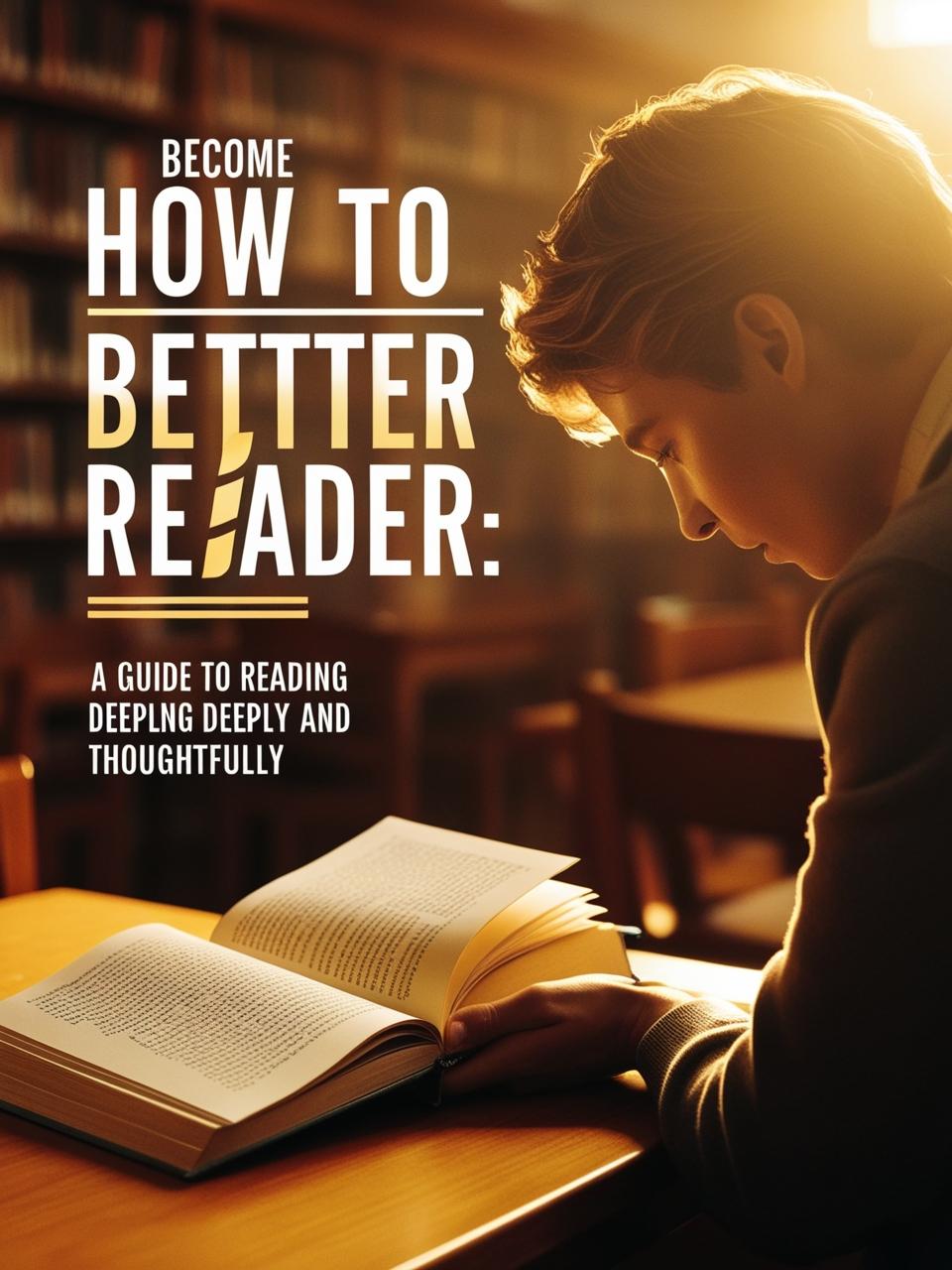In a world filled with distractions and the constant pressure to consume more, many people aspire to read challenging books—classics, philosophy, serious non-fiction, or literary fiction. Yet, the desire to read such works often clashes with the reality of finding the time, focus, and discipline to engage with them meaningfully. Becoming a better reader isn’t about speed or quantity; it’s about depth, understanding, and the ability to engage with complex ideas. Here are some practical tips to help you on your journey to becoming a better reader.
1. Treat Reading Like Exercise
Reading is a lot like working out. Just as you wouldn’t expect to run a marathon without training, you can’t dive into dense philosophical texts or literary classics without building your “reading muscles.” If you haven’t been reading consistently, start small. Dedicate 30 minutes a few times a week to focused reading. Over time, your attention span will improve, and you’ll find it easier to engage with more challenging material. Remember, the goal is to develop your ability to read deeply, not quickly.
2. Read Books More Than Once
One of the most effective ways to understand complex works is to read them multiple times. This is especially true for non-fiction, philosophy, or any text with intricate arguments. On your first read, focus on grasping the overall message or thesis. Then, revisit the book for a slower, more analytical read. This second pass allows you to see how the author builds their argument and connects ideas. While this approach may seem time-consuming, it’s far more rewarding than skimming through a book without truly understanding it.
3. Take Notes Strategically
Note-taking is a powerful tool for deepening your understanding, but it’s easy to overdo it. Instead of jotting down every detail, focus on key passages or ideas. Use light annotations—underline important lines, jot brief thoughts in the margins, or use book tabs to mark significant sections. After finishing a chapter, write a short summary of the main argument or theme. This method keeps your notes concise and prepares you for a more thoughtful second read.
4. Choose Your Books with Purpose
Reading widely is valuable, but it’s equally important to read with intention. Ask yourself why you’re picking up a particular book. Are you exploring a specific topic, like political philosophy or existentialism? Are you diving into the works of a single author, like Dostoevsky or Virginia Woolf? Or are you trying to understand a particular genre, such as Afrofuturism or modernist literature? Having a clear purpose for your reading helps you create a cohesive narrative in your intellectual journey.
5. Make Reading a Habit
Carry a book with you wherever you go—whether it’s a physical copy, an e-reader, or an audiobook. Use spare moments throughout the day to read, like during lunch breaks or before bed. By integrating reading into your daily routine, you’ll find it easier to stay consistent. Over time, reading will become second nature, and you’ll naturally gravitate toward more challenging and rewarding material.
6. Embrace the Challenge
Reading difficult books can be intimidating, but it’s important to embrace the discomfort. Just as exercise can be painful when you’re out of shape, engaging with complex ideas requires mental effort. Don’t expect immediate clarity or understanding. Instead, approach challenging texts with curiosity and patience. Over time, your ability to navigate dense material will improve, and you’ll find greater satisfaction in the process.
7. Focus on Quality Over Quantity
In a culture that often celebrates how many books we read, it’s important to prioritize quality over quantity. Reading one book deeply and thoughtfully is far more valuable than skimming through dozens without truly engaging with them. Take your time with each book, and don’t be afraid to revisit it multiple times. The goal is to internalize the ideas and let them shape your thinking, not to check off a box on a reading list.
8. Reflect on What You Read
After finishing a book, take time to reflect on its themes, arguments, and impact. How did it challenge your assumptions? What new perspectives did it offer? Journaling or discussing the book with others can help solidify your understanding and make the reading experience more meaningful.
In Summary
Becoming a better reader is a journey, not a destination. It requires patience, practice, and a willingness to engage with challenging ideas. By treating reading like exercise, choosing books with purpose, and focusing on depth rather than speed, you’ll develop the skills to tackle even the most difficult texts. Remember, the goal isn’t just to read more—it’s to read better. So pick up that classic, philosophy book, or literary masterpiece, and start your journey toward becoming a more thoughtful and engaged reader. Happy reading!
